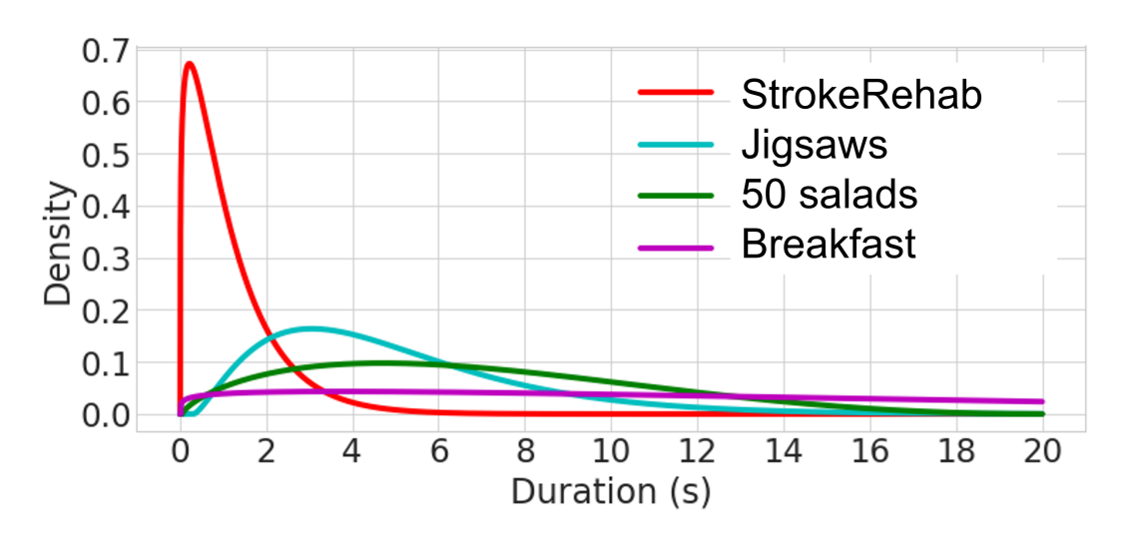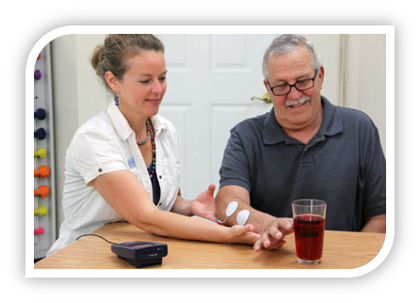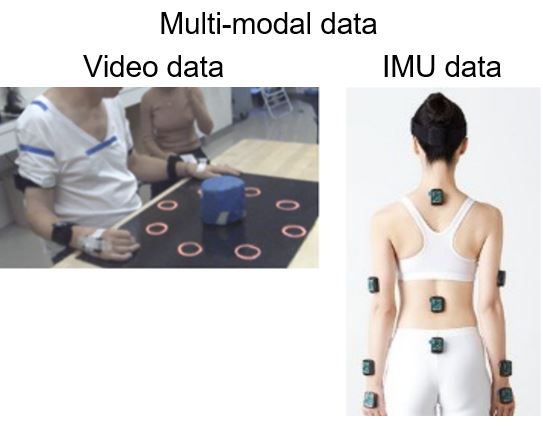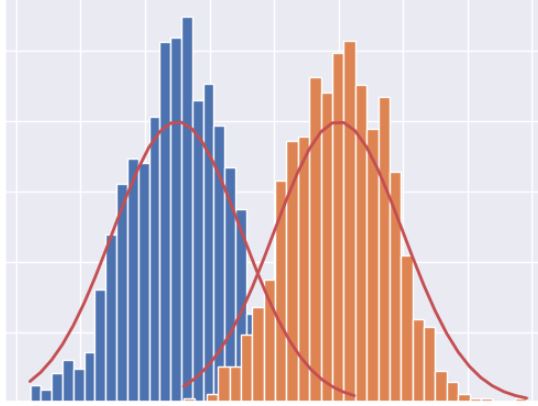
First benchmark for short-duration actions
The actions in the StrokeRehab dataset are much shorter (sub-second). They correspond to functional primitives that execute one goal, and are therefore qualitatively different to the higher-level actions in existing benchmark datasets.


